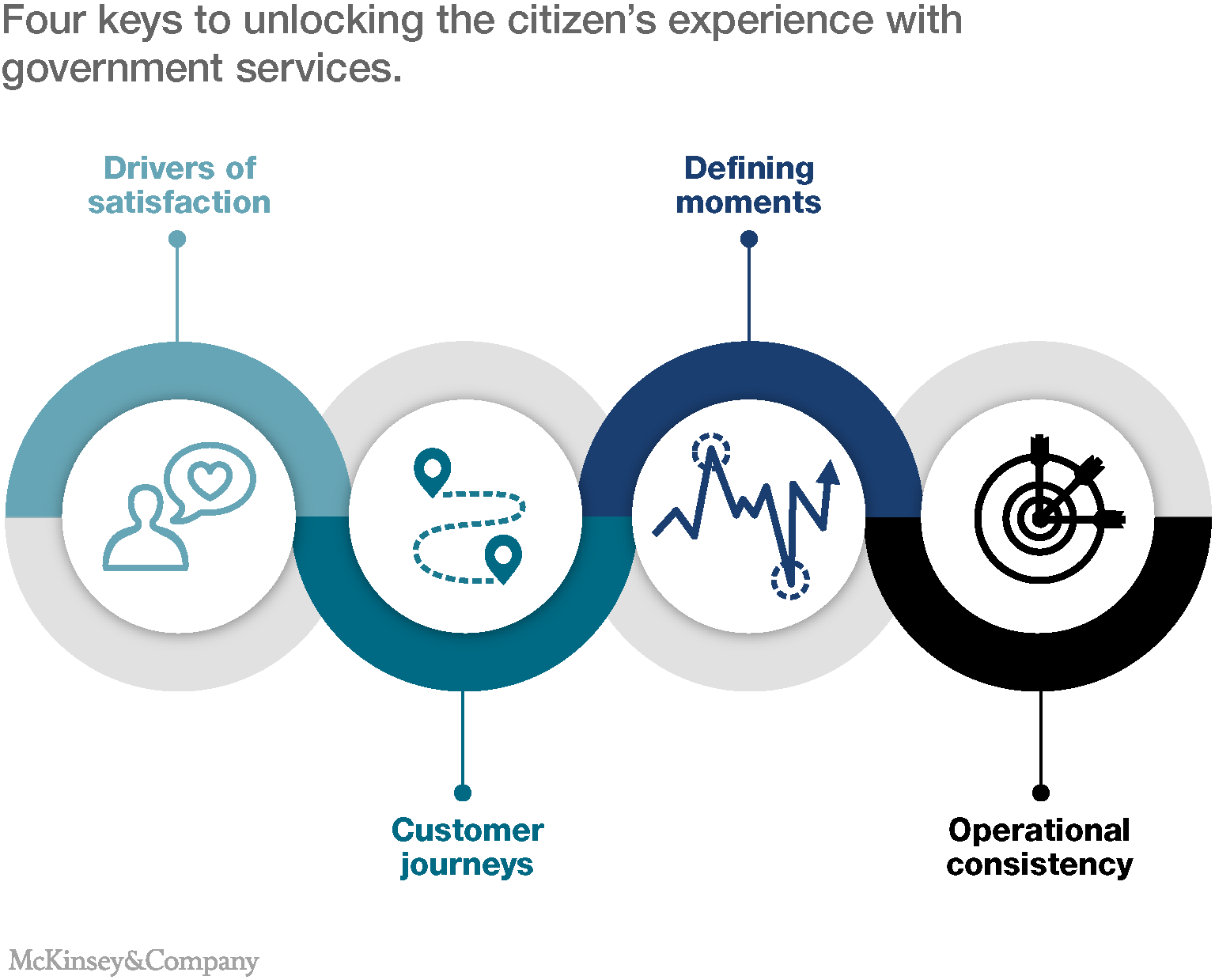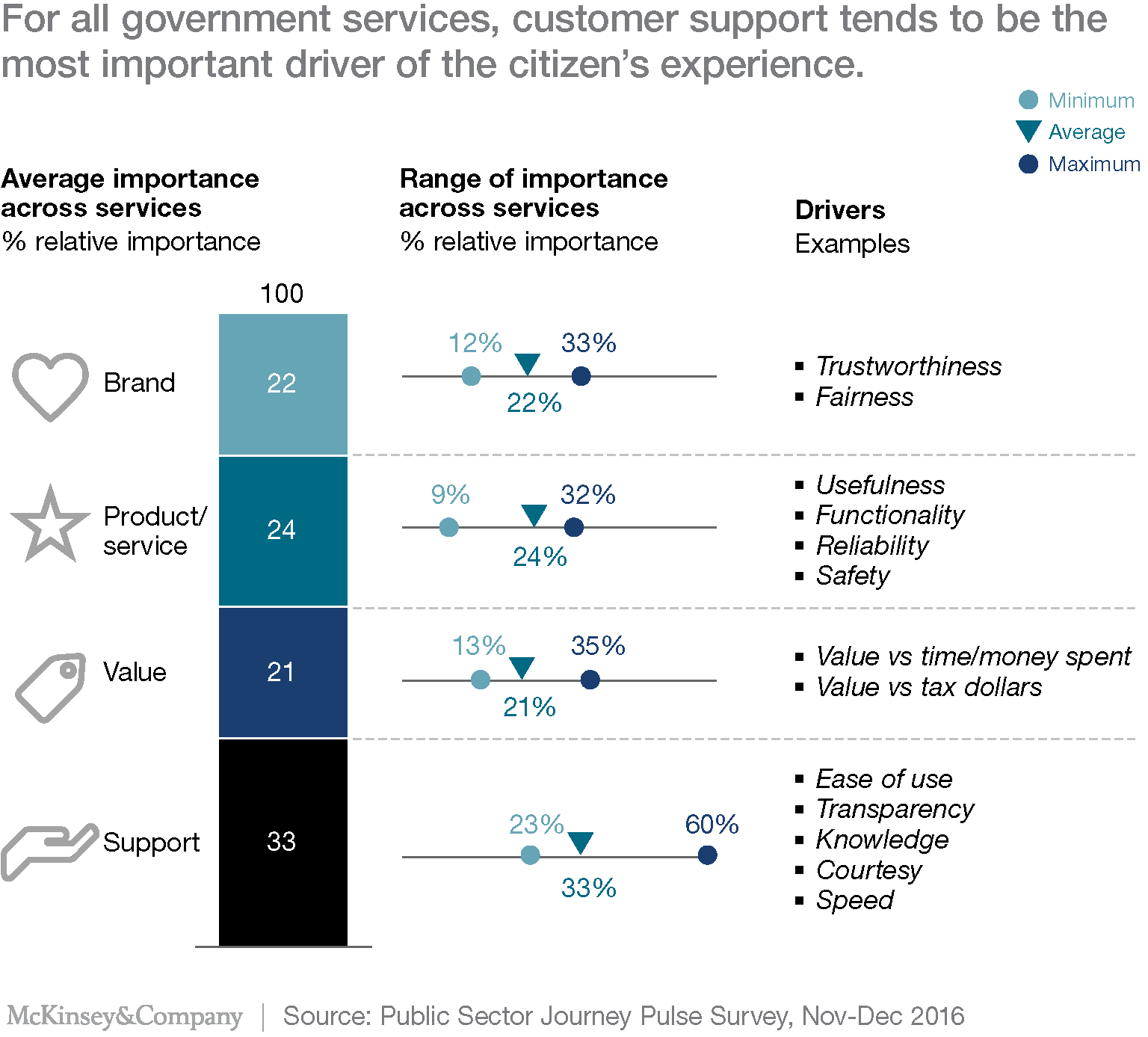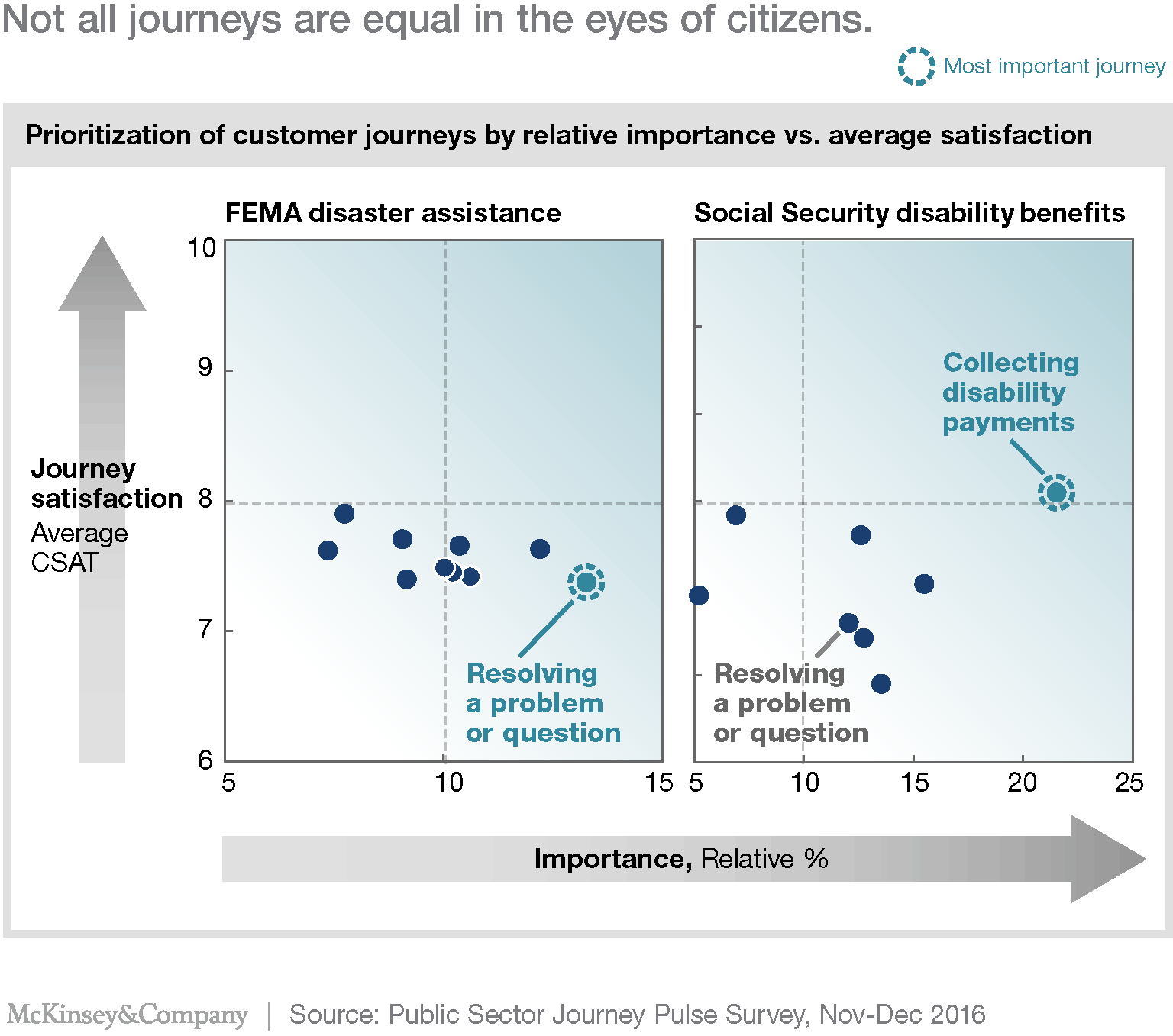4 Keys to Understanding What Matters to Citizens

Den Rise/Shutterstock.com
Before agencies toss money at customer service, they need to figure out the customers' priorities.
Tony D’Emidio is a partner in McKinsey’s Washington, D.C., office, where Jonah Wagner is a consultant.
This is part of a customer experience series. Read why citizens' experience should matter to agencies and real-world examples of agencies that have transformed their services.
Agencies that lack a clear understanding of what matters most to their customers risk wasting time and resources on things that don’t. Finding out is the first step.
In our previous article, we made the case for why the citizen experience matters for government agencies—as a unified approach to help them achieve their missions and financial goals, and to promote employee engagement and public trust.
» Get the best federal technology news and ideas delivered right to your inbox. Sign up here.
Yet, even agencies with “burning platforms” for change struggle to know where to start. For example, an agency that provides specialized insurance coverage had planned to invest heavily in speeding up its claims process. That is, until new research revealed most of the agency’s customers care more about unexpected changes to their coverage.
These findings, which became the basis for a multiyear transformation, offer an important lesson for other agencies—that understanding what matters to your customers is a vital first step to improving their experience.
But understanding what actually drives the citizen experience is challenging.
Cross-agency CX benchmarks, such as the American Customer Service Index, provide some guidance, but do little to explain what really influences citizen-satisfaction scores. Feedback on touch points (through surveys conducted by call centers or over the web) offers just a narrow window into the way respondents feel at a given moment. For better or worse, legislative restrictions (notably the Paperwork Reduction Act) make it hard to undertake direct-to-consumer research and get a true sense of the needs and desires of citizen users.
In late 2016, McKinsey & Company launched an effort to address this challenge, surveying more than 15,000 customers for some 30 services of the U.S. federal government. Our research highlighted four keys to understanding the citizen experience that can help agencies unlock what matters most to their customers.

1. Drivers of satisfaction
An agency looking to understand what matters to its customers might ask how good was the service? Was it fast? Easy? High quality? Was it worth it? Ultimately, there are four critical drivers linked to satisfaction and dissatisfaction with government services: the agency’s brand, the quality or reliability of the product or service provided, its value (in price, tax dollars and time spent), and its ease of use and quality of customer support. Determining the relative importance of these drivers is the first key to understanding how citizens experience government services.
Customer support, which explains on average one-third of overall CSAT for the services in our sample, tends to matter most. Yet, its importance varies considerably across agencies.

Citizens filing their federal tax returns, for example, care much more about customer support than about any other driver. In contrast, veterans seeking disability benefits from the Veterans Affairs Department view trust in the agency as more important than even the financial benefits it provides. This level of insight can help agencies prioritize the most important drivers of satisfaction in designing interventions.
2. Customer journeys
The second key is to understand which journeys are most important for customers. Journeys are the set of end-to-end experiences, defined from the perspective of citizens, that constitute the life cycle of their relationship with any given agency.
When citizens have questions about their federal tax returns, for example, they might consult with friends or tax preparers, search IRS.gov, reach a call center, visit a taxpayer-assistance facility, or undertake some combination of the above. We call this kind of end-to-end experience an “I have a question” journey.
Although any single touch point in it might unfold well (the IRS agent I spoke to was perfectly nice), the journey as a whole could be quite painful (but I can’t believe I had to call about something like this). Too many agencies emphasize fixing individual touch points rather than end-to-end journeys.
Many citizens will eventually experience a question-resolution journey, but its importance varies considerably across government services.

Disaster survivors, for example, care most about the Federal Emergency Management Agency’s ability to resolve questions or problems with their applications for disaster benefits—reassurance during a difficult time. Social Security disability beneficiaries, by contrast, care more about the experience of completing their application forms and collecting their benefits. Ease of use is critical. Though resolving questions or problems does matter to these citizens, other journeys matter more.
3. Defining moments
One bad incident—a rude customs agent, an unexpected notification for renewing a green card, an especially long airport security line—can deeply color a customer’s overall impression of an agency. The third key is therefore identifying where such negative defining moments might occur. Agencies that succeed in making them as rare as possible have statistically more satisfied customers than those that don’t.
However, the inverse isn’t true for positive defining moments. These findings fit with a growing body of behavioral-psychology research showing bad events have more power than good events to shape experiences and that people remember peak experiences more easily than ordinary ones.
Though mitigating these painful experiences is important for all organizations, it is particularly important in government, where customers have nowhere else to go. Unhappy citizens tend to generate a disproportionate amount of the cost to serve (e.g., phone calls) and risk (e.g., lawsuits) borne by agencies. Identifying and addressing these issues—even with temporary fixes—can build momentum toward deeper, longer-term change.
4. Operational consistency
Consistency is the bedrock of excellent citizen experiences and the best long-term way to avoid negative defining moments. Identifying the root causes of operational inconsistency is the fourth key to understanding what shapes satisfaction with government services.
Research conducted by McKinsey across over a dozen industries and sectors—from banking to pay-TV to government—shows lower levels of variation across experiences correlate strongly with higher levels of satisfaction. Establishing a customer-centric operating model that promotes consistency at the front line is essential for any agency that hopes to sustain a better citizen experience over time.
These four keys, taken together, create a framework for prioritizing what really matters in shaping the citizen experience. Armed with this knowledge, government agencies can move forward confidently to transform it. In our next installment, we will share lessons we’ve learned about how some agencies have used similar insights to have a lasting impact on their customers and society as a whole.





